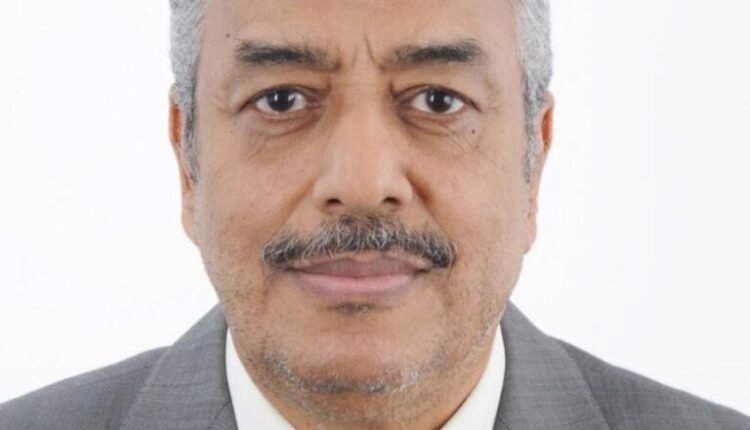Has God Abandoned the Muslims? (1–3)

By Dr. Ismail Satti
Introduction
Amidst the tragedies and suffering endured by Muslims in various parts of the world, a painful question often surfaces—first echoing within hearts before being voiced aloud: “Has God abandoned the Muslims?” Though the question may seem, at first glance, to challenge matters of faith, in truth, it expresses a profound crisis, deep affliction, accumulated betrayals, and a yearning for an answer that grants the soul resilience and awakens consciousness from heedlessness.
We pose this question not to sow doubt but to respond to it—not to reinforce despair but to uncover the roots of failure and open windows of hope. The Quran itself adopts a method rooted in questioning, contemplation, reflection, and transformation.
Hence, this analytical three-part series explores the matter from three perspectives: spiritual, historical, and political.
In this first part, “Has God Abandoned the Muslims?”, we approach the question from a faith-based and divine-law perspective, exploring relevant verses and prophetic traditions, identifying the causes that weaken Muslims’ relationship with their Lord, and examining the divine laws (Sunan) that never fail.
In part two, “Defeat Begins Within – The Forgotten Divine Laws and a Fractured Reality”, we analyze the internal factors that weaken the Muslim Ummah: division, corruption, subservience, and failure to adopt proper means. We show how defeat begins when hearts are defeated from within.
In part three, “Why Are Muslims Denied Deterrent Power?”, we delve into international politics and the recurring Western ideologies that seek to prevent Muslims from rebuilding strength and independence, exposing the mechanisms of control and restriction.
This series is not a motivational speech nor a lamentation of pain but a call for the Muslim mind to understand divine laws, break free from defeatism, and embrace the tools of revival with active faith and wise action.
“Indeed, Allah will not change the condition of a people until they change what is in themselves.”
The question “Has God abandoned the Muslims?” is shocking, yes—but at its core, it reflects pain, not rejection. It conveys the sentiments of Muslim communities facing siege, violence, and oppression yet unable to see even a glimmer of near victory. The recurrence of this question demands pause—not to assign blame or offer excuses, but to understand.
Answering this question requires a balanced approach that involves:
Belief in God’s unchanging laws in supporting His worshippers.
Understanding historical and societal dynamics.
Analyzing a complex global political reality.
First: From a Faith-Based Perspective — Has God Abandoned the Muslims?
The answer: Certainly not. Far be it from God. The Quran is teeming with verses affirming that God supports His believers when they uphold His commands, champion His religion, and strive in ways that please Him.
“Indeed, Allah will surely support those who support Him.”
“If you support Allah, He will support you and plant firmly your feet.”
“So do not weaken and do not grieve, and you will be superior if you are [true] believers.”
However, these promises of victory are conditioned upon the following:
True faith
Inner reform
Taking appropriate measures
Moreover, hardship is not abandonment—it may be a test:
“And We will surely test you with something of fear and hunger and a loss of wealth and lives and fruits—but give good tidings to the patient.”
Thus, the real question should be reversed:
Have contemporary Muslims abandoned God?
Have they forsaken His law and justice, failed to cooperate among themselves, and neglected to take the necessary means?
Second: God’s Universal Laws in the Muslim Reality
The Law of Inner Change
“Indeed, Allah will not change the condition of a people until they change what is in themselves.”
God’s law dictates that external change comes only after the internal transformation—of beliefs, morals, systems, and values. This makes us responsible actors, not mere victims.
The Law of Testing and Purification
“And Allah will surely test what is in your breasts and purify what is in your hearts.”
In times of hardship, the true nature of individuals and communities emerges, separating the sincere from the hypocritical.
The Law of Civilizational Alternation
“And these days [of varying conditions] We alternate among the people.”
Neither victory nor defeat is permanent for any group. Nations take turns in dominance depending on the causes they adopt.
Third: Major Transformations in the Islamic World (The Law of Struggle)
Understanding today’s reality requires surveying the geopolitical upheavals the Muslim world has faced since the end of World War II:
The collapse of earlier Islamic civilizational leadership (Abbasids, Umayyads, Ottomans, Andalusians)
The fragmentation of major Islamic empires and the rise of nation-states (monarchies, military, nationalist regimes)
The Cold War alignments post-WWII, with Muslim countries divided between global blocs
The establishment of Israel in 1948 as a colonial-settler entity
The spread of authoritarianism and the suppression of freedoms
The eruption of proxy wars
U.S. global dominance following the fall of the Soviet Union
The rise of Islamic movements and the internal and external challenges they faced
The stagnation of jurisprudence and the dominance of blind traditionalism
All these factors have contributed to shaping the present-day scene—meaning that Muslims abandoned the tools of revival, not that God’s universal laws abandoned them.
God supports His servants—if they rid themselves of internal defeat and grasp the bonds of victory. This will be explored further in the second part of this article.
Shortlink: https://sudanhorizon.com/?p=6142

